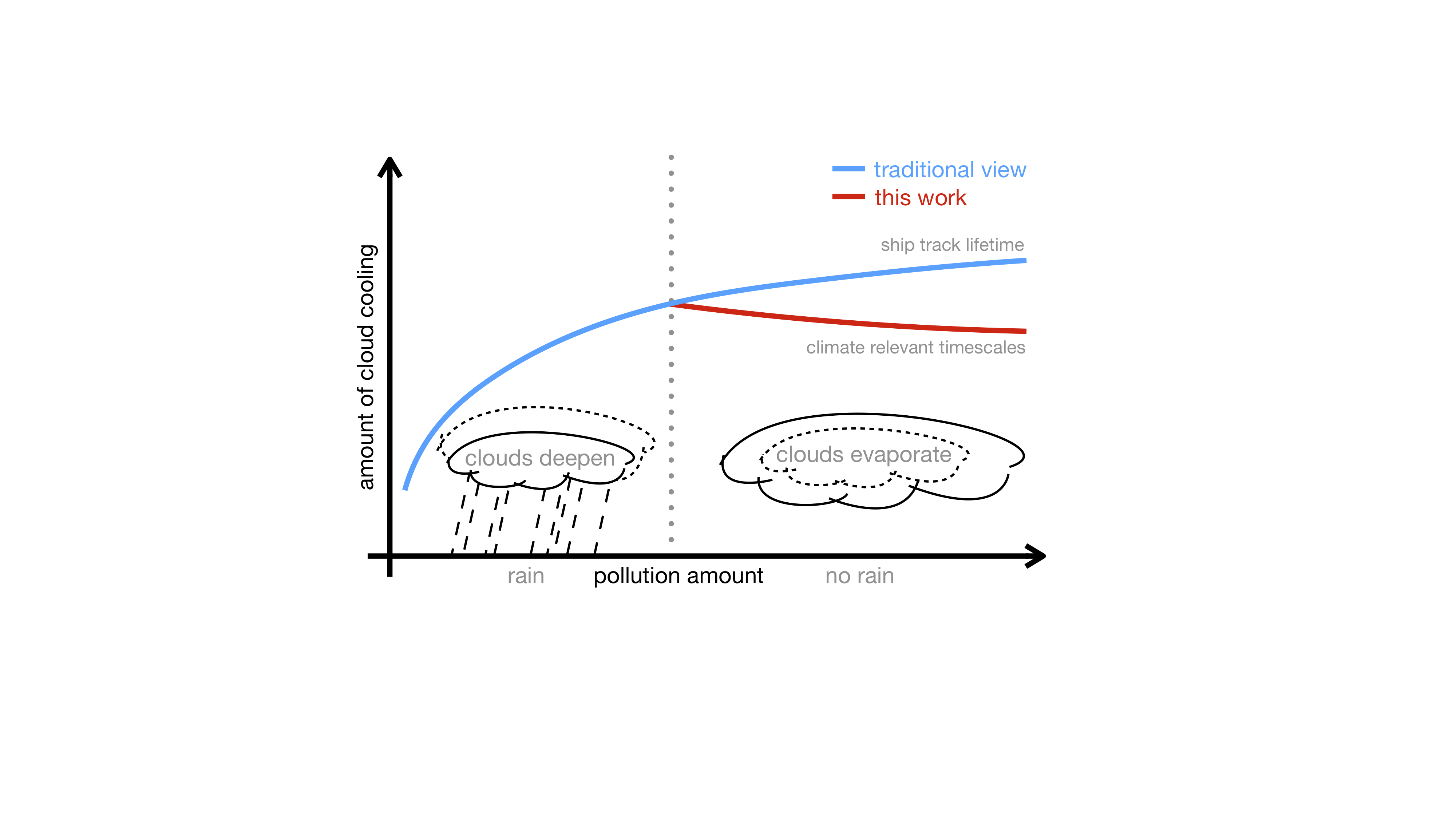Aerosol particles cool the climate less than we thought
Submitter
Feingold, Graham — NOAA Earth System Research Laboratory
Area of research
Cloud-Aerosol-Precipitation Interactions
Journal Reference
Science
The impact of atmospheric aerosols on clouds and climate may be weaker than previously thought.
Impact
Low-level clouds that cover large areas of the world’s oceans exert a cooling influence on climate by reflecting solar radiation back to space. Aerosol particles interact with these clouds and make these clouds more reflective, offsetting some fraction of greenhouse gas warming. Our work suggests that aerosol-cloud cooling is smaller than previously thought.
Summary
The effect of human-generated particles (aerosol particles) on clouds is one of the biggest unknowns in climate change projections. Studies of stratocumulus cloud tracks formed by ship emissions are often used to represent the climate-relevant radiative impact of aerosol-cloud interactions. The current work shows that quantification of climate cooling based on ship tracks significantly overestimates the cooling effect. A much better understanding of stratocumulus cloud responses to aerosol particles is required if we are to improve our projections of future climate.


